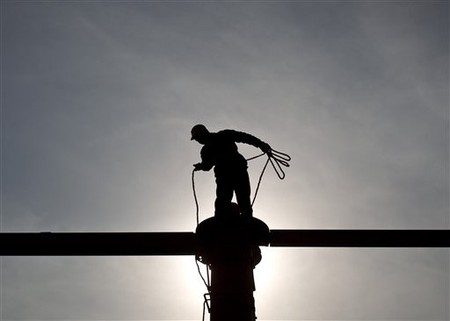Could America learn from China?

Writing in the Wall Street Journal (of all places) Andy Stern argues that China's model of single party authoritarianism and state-directed capitalism is superior to America's economic model. I think Stern is wrong - but his piece does raise two very important questions: 1. At what point does Stern's diagnosis become correct? 2. Would the United States possess the capacity to recognize that its system was failing and change course?
Usually when talk turns to China's performance and fears about America's future, we're reassured by knowledgeable experts that Churchill's maxim applies: "democracy is the worst form of government except for the all the others." We're also reminded of China's very deep social and economic problems - problems which even three decades of torrid economic growth have not fully solved (and in some cases may be exacerbating). I also find this analysis very persuasive - I'd be more willing to bet that the U.S. looks a lot stronger in 10 or 20 years than China does. I don't believe history vindicates the kind of strong central planning role that Stern lauds in his piece (to say nothing about the many abuses that abound in China's single-party system).
But what if China makes it work? What if over the next 20 years, China continues to experience strong economic performance with ever larger numbers of people rising from unemployment or subsistence wages and the U.S. creaks along with stagnant growth, very high unemployment and very high levels of income inequality? What if China makes the leap from a manufacturing-based economy to an innovations-based economy? What would defenders of the American status quo say then? At what point does China's economic performance, and America's lack thereof, speak to something more systemic? Something ideological?
The second question is even more intriquing - would the United States and its political leaders even be willing to acknowledge it had fallen behind and look abroad for solutions? We know that several Asian countries were able to do this kind of rigorous self-assessment and adopt growth-boosting reforms. At the end of the 19th century and the beginning of the 20th, Japan realized their society was lagging behind the West and embarked on a crash modernization that saw Japanese power grow enormously before World War II. China has done much the same thing in the economic arena. Could America?
(AP Photo)



